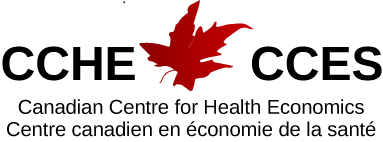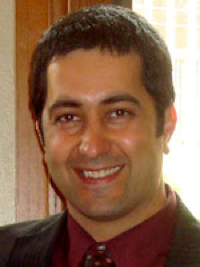 |
 |
CCHE Seminar: Hawre Jalal & Fernando Alarid-Escudero
Topic: Value on Investment (VOI) and Meta Modelling
Hawre Jalal, MD, PhD
Hawre Jalal is an Assistant Professor at the Department of Health Policy and Management and a researcher at the Public Health Dynamic Laboratory at the University of Pittsburgh. His research focuses on using mathematical modeling, cost-effective analyses and econometrics approaches to address health policy and resource allocation questions.
Fernando Alarid-Escudero, MSc
Fernando Alarid-Escudero , is a PhD candidate and a Fulbright scholar at the University of Minnesota School of Public Health. He holds a BSc in Biomedical Engineering and a MSc in Economics. His focus is on integrating mathematical and statistical modelling in decision and cost-effectiveness analyses, Bayesian methods in decision sciences and value of information (VOI) analysis.
, is a PhD candidate and a Fulbright scholar at the University of Minnesota School of Public Health. He holds a BSc in Biomedical Engineering and a MSc in Economics. His focus is on integrating mathematical and statistical modelling in decision and cost-effectiveness analyses, Bayesian methods in decision sciences and value of information (VOI) analysis.
Abstract
Value of information (VOI) analysis quantifies the opportunity loss associated with choosing a sub-optimal intervention based on current -uncertain- information. VOI can inform health policy because it quantifies the potential value of collecting additional information, resource allocation, research prioritization, and future research designs before any data collection takes place. Expected value of sample information (EVSI) measures the value of information from a finite sample. In practice, EVSI remains underutilized due to many conceptual and computational challenges associated with its application. The last few years have witnessed a dramatic growth in computationally-efficient methods to calculate EVSI, including metamodeling. However, little research has been done to simplify the experimental data collection step inherent to all EVSI computations, especially for correlated model parameters.
In our talk we will propose a general Gaussian approximation (GA) of the traditional Bayesian updating approach based on the original work by Raiffa and Schlaifer to compute EVSI. The proposed approach uses a single probabilistic sensitivity analysis (PSA) dataset, and involves two steps: (1) a GA step to compute the preposterior distribution of the parameters of interest and (2) a linear metamodel step to compute the EVSI on the preposterior distributions. The proposed approach is efficient and can be applied to a wide range of data collection designs involving multiple parameters and unbalanced study designs. Our approach is particularly useful when the parameters of an economic evaluation are correlated or interact and formal Bayesian updating is conceptually or computationally challenging.
CCHE Seminar Series 2016/17 – full schedule
Join the CCHE Health Economics seminar series mailing list by sending a request to cche@utoronto.ca.
 |
 |
Related Events

Sign up for IHPME Connect.
Keep up to date with IHPME’s News & Research, Events & Program, Recognition, e-newsletter.
Subscribe to Connect Newsletter
Get in Contact
Communications
Marielle Boutin
Email Address: ihpme.communications@utoronto.ca

